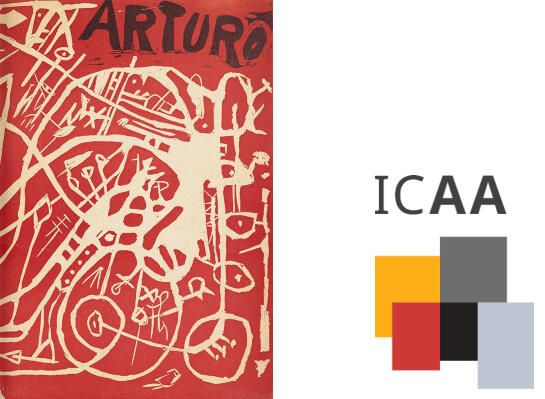THE MUSEUM OF FINE ARTS HOUSTON’S INTERNATIONAL CENTER FOR THE ARTS OF THE AMERICAS EXPANDS ITS DIGITAL ARCHIVE
The ICAA website and database now offers free global access to primary materials that are critical to academic research in art from Central and South America, the Caribbean, and U.S. Latino communities.

Established in 1900, the Museum of Fine Arts, Houston, is among the 10 largest art museums in the United States, with an encyclopedic collection of nearly 70,000 works dating from antiquity to the present. The MFAH is home to the International Center for the Arts of the Americas (ICAA), a leading research institute for 20th and 21st-century Latin American and Latino art.
Since its founding in 2001, the mission of the ICAA has been to collect, exhibit, research, and educate audiences about the diverse artistic production of Latin American and Latinx communities. By establishing the center, the museum sought to bring about a long-term transformation in the appreciation and understanding of Latin American and Latinx visual arts in the United States and abroad.
Now, ICAA has launched a redesigned and enhanced website and database for the landmark Documents of Latin American and Latino Art Digital Archive Project.
The site makes available a wealth of writings by artists, critics, and curators from Mexico, Central and South America, the Caribbean, and the U.S. Latino communities--Chicano/a, Puerto Rican/Nuyorican, Cuban-American, and Dominican among others. ICAA has now brought the Documents Project into a new era through institutional partnerships that are making a wide variety of materials available for the first time, and through features that make the website and database more accessible and user friendly.
Considered the first, and still the only, digital humanities initiative in the fields of Latin American and Latino art, the ICAA’s Documents Project cuts across national and cultural boundaries. Fully bilingual, the digital archive provides English and Spanish-speaking students, scholars, researchers, collectors and art enthusiasts full access to more than 8,200 letters, manifestos, newspaper and journal articles, exhibition reviews, and other key theoretical, critical and art-historical texts.
“It is difficult to overstate the significance of this project to the fields of Latin American and Latino art,” noted Gary Tinterow, director of the Museum of Fine Arts, Houston and Margaret Alkek Williams Chair. “Twenty years ago, then-MFAH director Peter Marzio and Mari Carmen Ramirez recognized that the lack of access to primary sources was a fundamental barrier to understanding entire generations of artists who made important contributions to 20th-and now 21st-century art. By establishing the ICAA in 2001, and embarking on this monumental project, the Museum moved to assure the future of the field for scholars and students, and audiences worldwide.”
Mari Carmen Ramirez, founding director of the ICAA and Wortham Curator of Latin American and Latino Art at the MFAH, said: “Following on a phase of nearly ten years, during which ad-hoc research teams coordinated from Houston by the ICAA operated in more than 16 Latin American and U.S. cities, the ICAA is shifting its focus toward partnerships with artist’s archives and estates, foundations, and select public and private institutions. This new phase of the Documents Project will develop and expand a host of understudied areas of research, including Latin American contemporary artistic production; the work of Latin American and Latina artists; and a significant expansion of represented Latinx artists, both historical and contemporary. The website redesign enhances the database’s accessibility to users worldwide and connection to ICAA partners outside Houston.”
The material brings to life the ferment of international cultures, ideas, and personalities that swept across 20th, and now 21st–century South and Central America, the Spanish-speaking Caribbean, and Latino communities in the United States, establishing the basis for a comparative history of the art of this region. These writings provide invaluable evidence of how artists, writers, and intellectuals sought to define or challenge notions of a national art; how art movements emerged in response to changing local political situations and the encroachment of perceived North American imperial politics and culture; and how Latin American and Latinx artists contributed major theoretical insights to the early stages of global avant-garde movements and initiated novel tendencies.
In the last decade, the ICAA has organized research-based exhibitions, pursued a dynamic publications program, and developed research and education projects that complement the MFAH’s renowned collection of Latin American art. The Center has also organized international symposia, published its proceedings in bilingual format, and developed widely acclaimed exhibitions.


